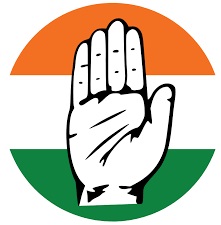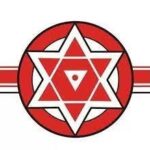
| Service | Apply For Membership Online [Join INC Party] |
| Party | Indian National Congress [INC] |
| Eligibility | Indian Citizen Holding Voter ID |
| Service Mode | Online |
| Official Website | https://www.inc.in/ |
Steps To Get Indian National Congress Online Membership
“The Indian National Congress has always represented a secular, democratic, just and inclusive India-An India that is empowering the disadvantaged and the discriminated; An India that is blending tradition with modernity; An India that is anchored in unity amidst its many diversities.” Smt. Sonia Gandhi. If your vision for the nation is the same as ours, become a member of the Indian National Congress and together we will build a better India. Before you get started, keep your Voter ID handy.
Steps:
• Visit Indian National Congress Membership Page
• Fill the Online Application Form
• Accept the ‘Terms & Conditions’
• Hit Submit Button
Know About Indian National Congress
The Indian National Congress (INC) is one of the oldest and most prominent political parties in India. It played a pivotal role in the country’s struggle for independence from British rule and has remained a dominant force in Indian politics since then.
Key points about the Indian National Congress:
Formation and History:
The Indian National Congress was founded in 1885 during British colonial rule by prominent Indian leaders, including Allan Octavian Hume, Dadabhai Naoroji, and Dinshaw Wacha. Initially, it was formed with the objective of seeking greater political participation for Indians within the British colonial administration. However, it gradually evolved into the principal vehicle for India’s independence movement.
Role in Independence Movement:
The Congress Party spearheaded various campaigns and movements against British rule, such as the Non-Cooperation Movement led by Mahatma Gandhi and the Quit India Movement during World War II. Its leaders, including Jawaharlal Nehru, Sardar Vallabhbhai Patel, and many others, played crucial roles in negotiating with the British and ultimately securing India’s independence in 1947.
Post-Independence:
After independence, the Indian National Congress became the ruling party and governed India for the majority of its post-independence history. It established itself as a secular, center-left party with a focus on social justice, economic development, and non-alignment in foreign policy.
Leadership:
Jawaharlal Nehru, India’s first Prime Minister, was a towering figure in the Congress Party and played a significant role in shaping India’s post-independence trajectory. After Nehru, his daughter, Indira Gandhi, and her son, Rajiv Gandhi, also served as Prime Ministers and led the party. The party has seen various other prominent leaders at different points in its history.
Political Ideology:
The Indian National Congress has traditionally espoused a secular and inclusive ideology, advocating for social welfare programs, economic reforms, and secular governance. It has positioned itself as a party representing the interests of diverse sections of Indian society, including farmers, workers, minorities, and marginalized communities.
Electoral Performance:
While the Congress Party enjoyed widespread support in the initial decades post-independence, its dominance has been challenged by the rise of regional parties and the emergence of the Bharatiya Janata Party (BJP) as a formidable political force. However, the INC remains a significant player in Indian politics, particularly at the national level, and has governed several states in coalition governments.
Challenges and Reforms:
In recent years, the Congress Party has faced challenges such as leadership struggles, internal divisions, and electoral setbacks. It has been working on rejuvenating the party organization, connecting with grassroots supporters, and articulating a coherent vision to regain its lost ground. Overall, the Indian National Congress remains an influential force in Indian politics, with a rich history and a significant role in shaping the country’s political, social, and economic landscape.
Have a question? Please feel free to reach out by leaving a comment below
![Aam Aadmi Party [AAP] Membership Application Online AAP-Logo](https://www.recruitmentzones.in/wp-content/uploads/2022/07/AAP-Logo-150x150.jpg)


![Indian Railways Parcel Tracking Online [Track & Trace] Indian-Railway-Logo](https://www.recruitmentzones.in/wp-content/uploads/2024/06/Indian-Railway-Logo-150x150.jpg)
